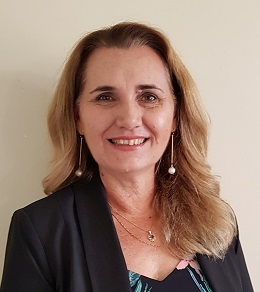If you have asked yourself any of these questions or can identify with any of the statements below, it may be that it’s time for a conversation about anxiety and intimacy:
- “I feel anxious that I cannot enjoy sex or explore an intimate relationship because it may be painful”;
- “What if I can’t perform?”;
- “I’ve been raised to believe that talking about sex and intimacy is a sin”;
- “I can’t relax enough – my body just tenses up”;
- “Wearing tampons is difficult so how can I have a healthy sex life?”;
- “I don’t have an intimate understanding of how my body works”.
Discussions around sex and our bodies over the years have often been associated as “something not to be talked about” or “embarrassing” due to societal influences such as school, church or even family beliefs (Hardin & Sloan, 2016, p. 137).
With the increasing exposure within our culture through advertising, social media, movies and music, relationship intimacy has become identified as primarily being based on sex – and that can add to a person’s performance pressure.
As a Christian counsellor, I am seeing both male and female clients presenting with anxiety due to intimacy issues with their partner. Whether clients attend as a couple or individually, there is often a central theme of a lack of communication that has affected how a couple closely engages.
Misinformation surrounding faith principles and self as a sexual being have unfortunately kept many people feeling shame or guilt, and too afraid to talk about their experiences. As Hardin and Sloan (2016) discussed: “God gave both the male and the female sensitive areas to stimulate such as lips, breasts, and genitals, making the sexual relationship pleasing for both” (p. 140).
Intimacy is not just sexual interaction!
Intimacy is about knowing oneself and being comfortable with all of that self including body, mind and spirit. Being comfortable in your own being opens the way for the development of healthy relationships.
How Anxiety Can Impact Intimacy
Feeling anxious and experiencing stress is a normal part of life, however if those feelings remain unresolved the person may begin to experience ongoing physical, psychological and behavioural symptoms that become anxiety (Beyond Blue, 2020). Ruminating thoughts or fears about the “what if’s” can begin to build up, and a pattern of avoidance may develop.
Have you noticed that you may be finding reasons to avoid your partner and intimate situations, for fear of a negative sexual experience and the associated stress?
It is always important to consult your General Practitioner for a check-up and to rule out any physical considerations before addressing psychological symptoms.
Various conditions such as Erectile Dysfunction, Orgasmic Disorder and Vaginismus can have both physical and psychological factors present, and impact intimacy either individually or as a couple. Emotions like feeling frustrated and embarrassed, can add to the stress and anxiety factors, hence reinforcing a negative mindset.
Conditions such as Vaginismus present with a physical response that has a tensing of the body muscles to the point where even the thought of penetration of a tampon can be very overwhelming and distressing.
How Intimacy Counselling can help
By using various therapeutic approaches, a counsellor trained and experienced in intimacy counselling can work with the client to identify the underlying triggers or negative thoughts that may be fuelling anxiety around sexual arousal and intimacy.
Desensitisation by talking openly in a relaxed environment whilst exploring client fears, past experiences and beliefs about his or her own physique can also be beneficial, as well as becoming more familiar with your body and its functions.
Whether there is a medical diagnosis or not, therapeutic techniques using breathing, muscle relaxation scripts and grounding can be very helpful to reduce anxiety and muscle tension.
Learning to communicate with your partner through touch and verbalising your fears as well as your intimate needs, wants and desires is necessary to enhance growth and understanding and generally reduces the levels of anguish (Hardin & Sloan, 2016).
If you have been struggling in silence and wondering “Am I normal?” – Then perhaps it is time to begin the conversation.
 Author: Wendy Smith, B Counselling, PACFA.
Author: Wendy Smith, B Counselling, PACFA.
Wendy Smith is a Christian counsellor working with adults and adolescents. As an Integrative Therapist, she uses different modalities ranging from evidence-based practices such as ACT and CBT, drawing from others when appropriate. Wendy has a deep passion to see people find restoration and growth on their journey to wholeness and wellbeing.
To make an appointment with Brisbane counsellor Wendy Smith, try Online Booking – Wishart. Alternatively, you can call Vision Psychology (Wishart) on (07) 3088 5422.
References
- Beyond Blue. (2020). Anxiety signs and symptoms. Retrieved from https://www.beyondblue.org.au/the-facts/anxiety/signs-and-symptoms
- Hardin, J. & Sloan, D. (2016). Getting ready for marriage workbook. Nashville,Tennessee, USA: Thomas Nelson.